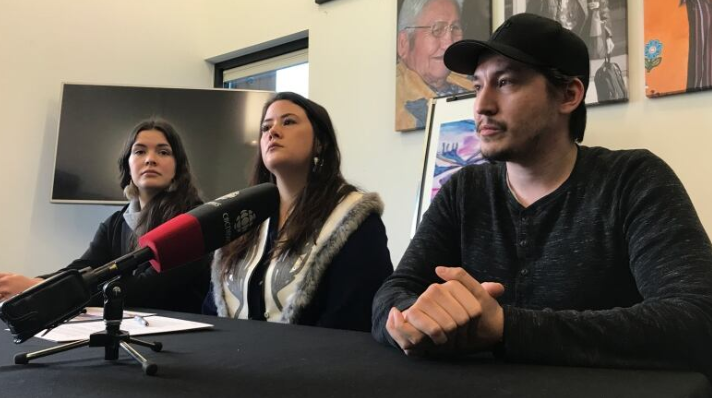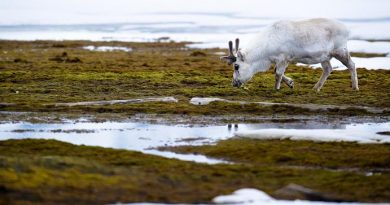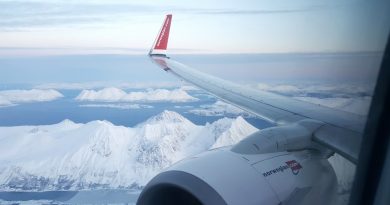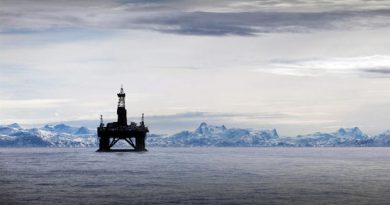Indigenous leaders in northwestern Canada declare climate emergency

Indigenous leaders sign declaration stating climate change requires immediate action
Dana Tizya-Tramm, chief of the Vuntut Gwitchin First Nation, was speaking at a news conference in Whitehorse on Tuesday when he was interrupted by a loud fire alarm, elsewhere in the building.
“It’s a climate emergency!” Tizya-Tramm said.
He was joking, but it was a pointed joke — the news conference was all about how Yukon First Nations agree that climate change is an emergency, and that it requires immediate action. Tizya-Tramm and other Yukon Indigenous leaders had just signed a formal declaration saying as much.
“We know in Kluane territory, Vuntut Gwitchin, Kwanlin Dün First Nation, we know that climate is being experienced in our communities more than anywhere else around the world,” said Kluane Adamek, Yukon regional chief of the Assembly of First Nations (AFN).
“Climate change is real. We know that as northerners, every single one of us — Indigenous or non-Indigenous — we know it’s real. We all have to respond. The time for action is now.”
“Setting the foundation”
The signed declaration capped off a multi-day meeting on climate action in Whitehorse for Yukon Indigenous leaders. It was hosted by the AFN and the Council of Yukon First Nations (CYFN), and paid for with $250,000 from Ottawa’s Climate Action Fund.
The climate change declaration is intended to “set the foundation” for an action plan, according to a news release from the AFN and CYFN.
It follows similar declarations over the last year, from the Vuntut Gwichin First Nation, the City of Whitehorse, and the Yukon government.
“It is so important that the world understand what an Indigenous worldview to climate change looks like,” Adamek said. “And from a Yukon regional perspective, that means looking to Yukon First Nations to continue to guide that work,”
Food security, education, wellness
Emily McDougall, AFN’s Yukon regional climate change co-ordinator, said the Whitehorse gathering brought together some diverse perspectives.
She said the discussions covered everything from food security to education and wellness.
“It was very inspiring to see youth come together, and elders, and be able to share openly and to learn from one another,” McDougall said.
“We can’t heal Mother Nature until we start healing with ourselves. So I think that was a really core foundation of this declaration.”
-With files from Jane Sponagle
Related stories from around the North:
Canada: Renewable energy must be community tailored, Arctic conference hears, Eye on the Arctic
Finland: Few Finns willing to make sacrifices alone for climate, poll finds, Yle News
Norway: Unfazed by youth climate protests, Norwegian gov expands Arctic drilling, The Independent Barents Observer
Russia: Norilsk, Arctic Russia is world’s largest sulfur dioxide emissions hotspot: report, The Independent Barents Observer
Sweden: Local councils in Sweden more interested in climate change preparedness, Radio Sweden
United States: Alaska remote diesel generators win exemption from pollution rule, Alaska Public Media




LOVE IT!
VERY THRILLING
SO BEAUTIFUL
BADDIES FOR CLIMATE.